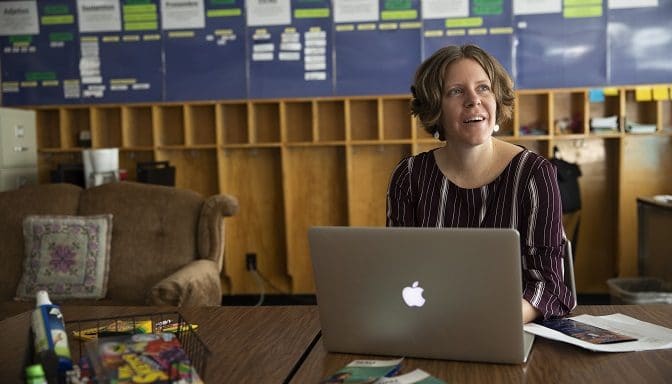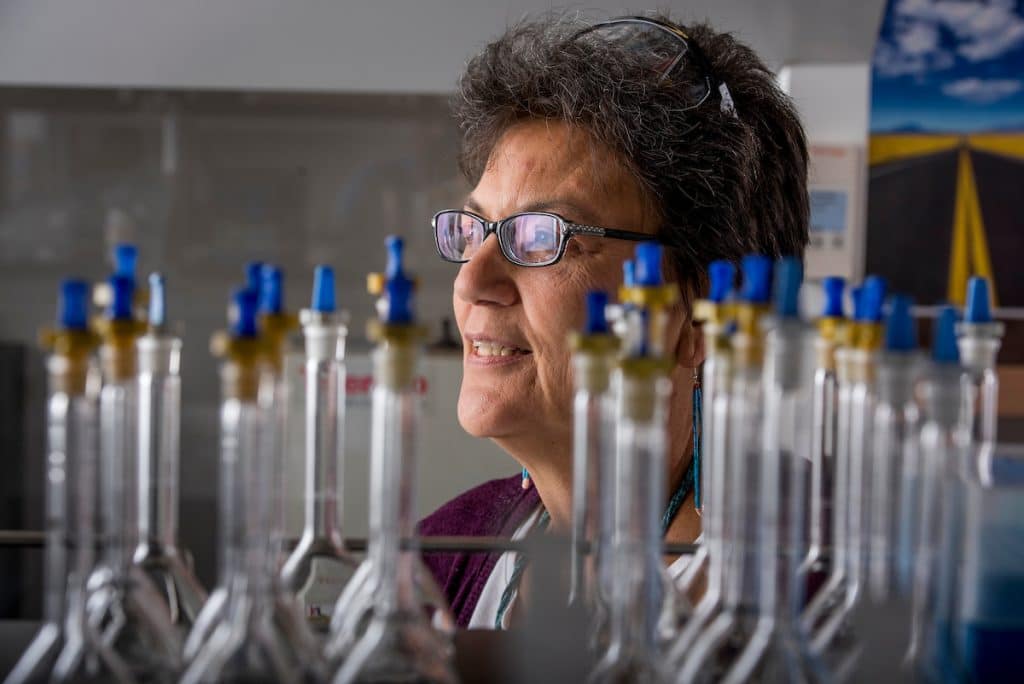Nov. 26, 2018
Indigenous people have the lowest rate of university enrollment and graduation rates of any group in the United States—and in science, technology, engineering and mathematics (STEM) fields, they represent only 0.5 percent of students nationwide. Professionals in STEM careers are underrepresented as well—Native Americans make up only 0.4 percent of the engineering workforce, according to the National Action Council for Minorities in Engineering.
Jani Ingram, a professor of chemistry and biochemistry at Northern Arizona University who has worked extensively within Indigenous communities and with STEM teachers, students and professionals at all levels, believes culturally embedded ethical issues may pose a significant barrier to the success of Indigenous people in STEM fields.
“Although there is a growing body of knowledge about what constitutes ethical STEM research and practice, most of this knowledge does not adequately consider the way ethics intersects with culture, and specifically, with Indigenous cultural knowledge and worldviews,” Ingram said.
With funding through a $387,991 grant from the National Science Foundation, Ingram and co-principal investigator Angelina Castagno, professor of educational foundations, will investigate the types of ethical issues Indigenous students and professionals experience in STEM fields and the extent to which Indigenous spiritual beliefs and taboos create barriers to the pursuit of STEM-related careers.
Chad Hamill, vice president for Native American Initiatives, connected Ingram and Castagno after seeing the call for proposals from NSF.
“The interdisciplinary collaboration makes this project both unique and compelling because we bring very different research approaches and areas of expertise to the investigation,” Castagno said.
The project will explore three related research questions:
- What ethical issues do Indigenous students and professionals in STEM fields experience, and how do they navigate these issues?
- Do ethical issues impede Indigenous students from pursuing STEM careers, and if so, how?
- Do ethical issues impact the retention and promotion of Indigenous STEM professionals in their careers, and if so, how?

The research is designed to employ a blend of grounded theory and critical Indigenous research methodologies. It will begin with a survey distributed to Indigenous students and professionals in STEM fields in the western United States, followed by individual interviews with a subset of those responding to the survey. Analysis of the survey and interview data will be iterative, descriptive, correlational and comparative.
The researchers will explore whether and how culturally embedded ethical barriers contribute to this underrepresentation; the results will suggest policies and practices that could minimize the impact of these factors.
“More equitable representation of Indigenous peoples in STEM is necessary to ensure diverse, high-quality STEM perspectives and approaches,” Ingram said.
Providing opportunities to Indigenous students, teachers
Ingram is involved in several major efforts at NAU to provide educational and research opportunities to Indigenous students, including serving as a research mentor in the Research Initiative for Science Enhancement (RISE) Program and the director of the Bridges to Baccalaureate Program. She also is the lead principal investigator for the Partnership for Native American Cancer Prevention (NACP). In early 2018, Ingram received the American Chemical Society (ACS) Award for Encouraging Disadvantaged Students into Careers in the Chemical Sciences. The prestigious award recognized Ingram “for her outstanding accomplishments in recruiting and mentoring students from underrepresented groups, especially American Indians and Alaskan Natives, into professional careers in chemistry,” according to the ACS.
Castagno is the planning director of the Diné Institute for Navajo Nation Educators, which offers long-term development seminars to K-12 teachers on the Navajo Nation. She is the author and co-author of books and articles on cultural issues, including “Postsecondary education for American Indian and Alaska Native: Higher education for nation building and self-determination,” and is an associate editor for the Journal of American Indian Education.
Kerry Bennett | Office of the Vice President for Research
(928) 523-5556 | kerry.bennett@nau.edu




